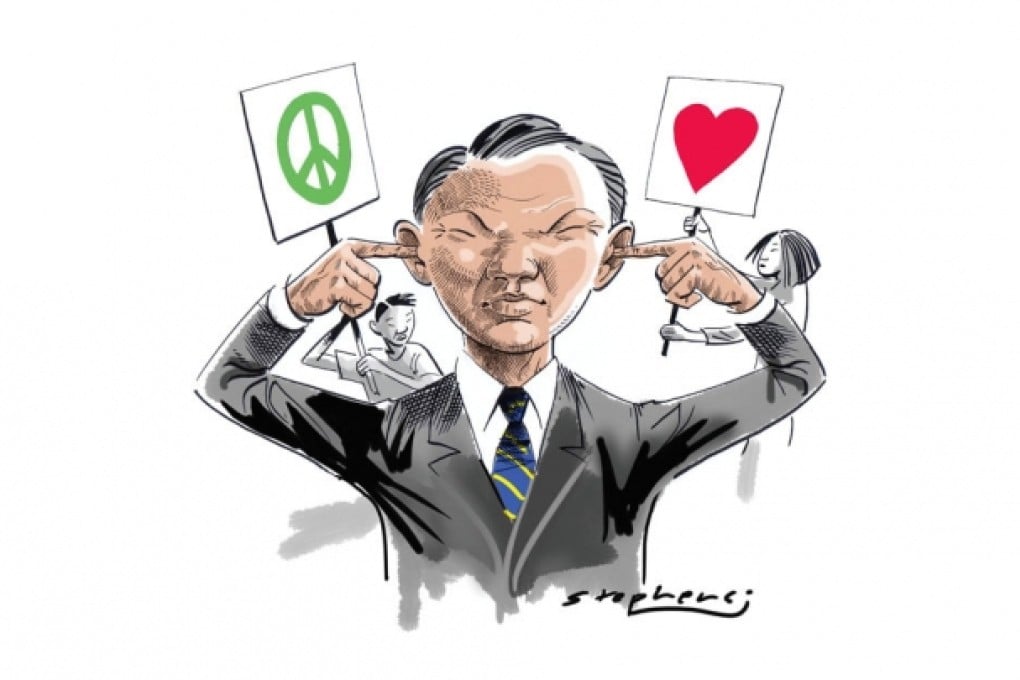Hong Kong in the mood for democracy
Anson Chan calls on the government and its supporters to stop vilifying pro-democracy campaigners, and instead address Hong Kong people's urgent desire for constitutional reform

The torrent of criticism unleashed upon Professor Benny Tai Yiu-ting's initiative to "Let Love and Peace Occupy Central" is truly astonishing. Leading the charge are the China Daily and local pro-Beijing newspapers which have been publishing an unrelenting stream of articles and opinion pieces, accusing those who support the movement of being determined to break the law just for the sake of it.
Then there is the carefully orchestrated campaign by some chambers of commerce and other bastions of vested interest. They have taken out full-page advertisements in the local press, predicting that Occupy Central will cause economic mayhem and irrevocably tarnish Hong Kong's image as a global business and financial services centre. A number of high-profile figures, who frankly should know better, have also jumped on the bandwagon: speculating that the blocking of roads in the heart of Central could prompt intervention by the People's Liberation Army to restore law and order!
Much of this alarmist invective would be laughable were it not for some sinister undertones. Demonising Occupy Central provides useful cover for a more general attack on the aims of the democracy movement. It also provides a convenient way of avoiding the main issue, namely, how to move forward - as a community - to achieve genuine universal suffrage for the election of the chief executive in 2017 and all members of the Legislative Council in 2020.
What we need are constructive ideas on how to build a consensus and a willingness to engage in rational discussion. Instead, we have a concerted effort to vilify and intimidate potential supporters of the campaign, simply because they feel passionately enough about the cause of universal suffrage to risk arrest.
Let's put aside the scaremongering and focus on facts. The fundamental reason the Occupy Central movement is gathering momentum is because many people - and not just those already in the pro-democracy camp - have simply lost confidence in the government's determination to deliver genuine universal suffrage by the relevant target dates. Frustration over the government's refusal to indicate when public consultation will begin is being compounded by a growing sense of disillusionment with the performance of the chief executive and his team.
The mood of the community is reflected sharply in the results of two recent polls conducted by the University of Hong Kong's public opinion programme. One poll shows that trust and confidence in the Hong Kong and central governments have fallen to the lowest levels since 2003, when 500,000 people took to the streets on July 1. A second poll, to gauge public satisfaction with current economic, livelihood and political conditions, found that by far and away the greatest net dissatisfaction rate (43 per cent) was with the current political condition.
These findings should set alarm bells ringing in the corridors of power, both here and in Beijing. However, far from appearing concerned at his abysmal popularity ratings, our chief executive seems detached from current political realities.